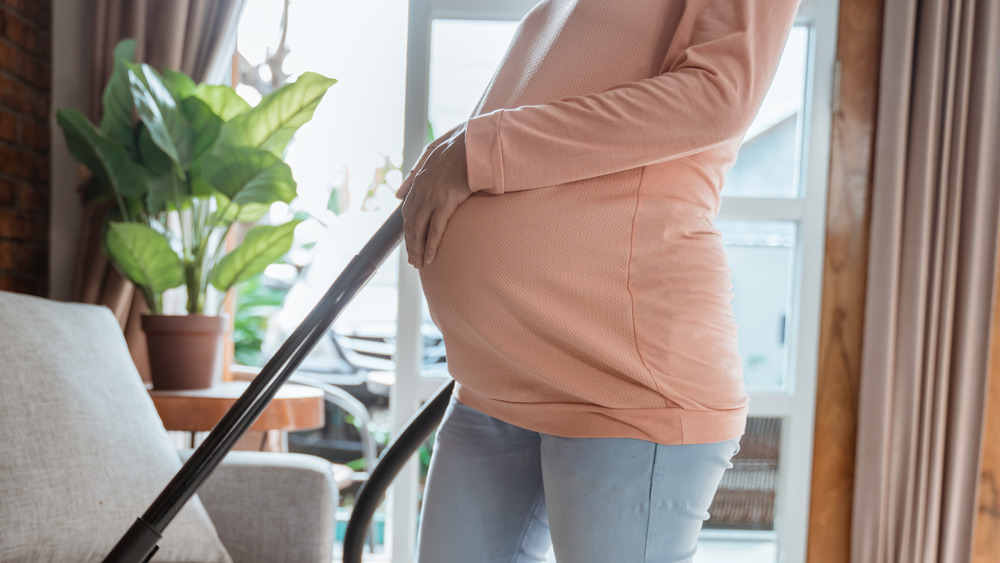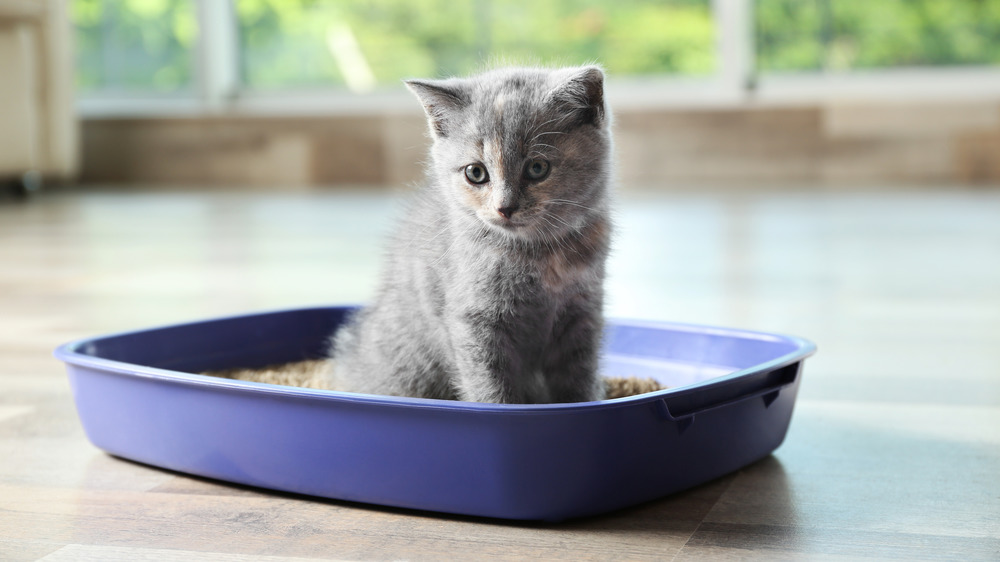The One Chore You Really Shouldn't Do If You're Pregnant
Let's face it: Chores are never fun. Sure, we all have what we consider to be our "favorite" chores, whether it be laundry, vacuuming, dusting, or doing dishes, but there's no denying that when it comes to doing other tasks around the house — like cleaning the bathroom, for instance — many of us would rather cut our arm off. While favorite and least favorite chores obviously vary from person to person, one thing pet owners can attest to is that cleaning up after your pets is a daunting task (not to mention, a pretty gross one). However, unless you want to live in absolute filth alongside your four-legged furry friends, it's something you just have to do.
That is, if you're not pregnant. Unfortunately, picking up after your pet may be dangerous for pregnant women — especially if you're a cat owner. Read on for the surprising reason why pregnant cat owners need to be careful when it comes to changing the litter box.
The contents of a cat's litter box may pose a threat to pregnant women
Speaking with Care about old wives' tales about pregnancy, Dr. Kate Killoran, an OB-GYN from Your Doctors Online, told the outlet about the surprising danger litter boxes pose to pregnant women. "[Pregnant women] should not clean a cat's litter box," she says, warning readers about a disease called toxoplasmosis, which is an infection caused by the parasite Toxoplasma (via Healthline). A cat can become infected after consuming "meat (usually rodents) containing infectious toxoplasma cysts;" after a few weeks, the cysts multiply and are shed in the cat's feces, and a human can become infected after inhaling the sporulated cysts from the cat litter.
According to the Mayo Clinic, some pregnant women won't know they're infected and show no signs of the illness, and others will exhibit flu-like symptoms, like body aches, swollen lymph nodes, fever, headache, and more. Another risk of getting infected during pregnancy is the possibility of passing it along to your baby if you're infected during your third trimester, which can cause stillbirth or miscarriage. The baby may also be born with jaundice, eye infections, seizures, and more.
While all of that sounds serious and scary, toxoplasmosis is relatively uncommon — between 400 and 4,000 babies are born with the infection each year (via March of Dimes). Dr. Killoran says you don't have to get rid of your cat during pregnancy, though. "But otherwise, your cat poses no risk," she says.

